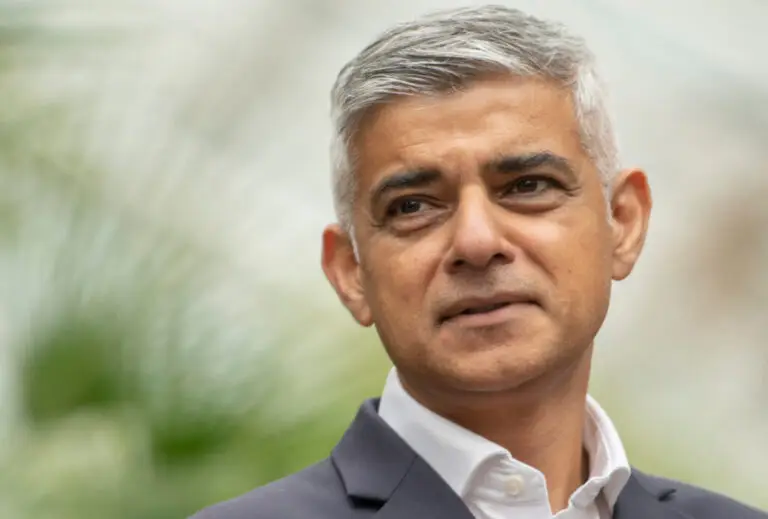The day that was: Tuesday 2nd November
- Yesterday was the second and final day that world leaders congregated in Glasgow to commit to climate goals that aim to secure the future of our planet. As of last night, and this morning, leaders will leave the summit and delegates will take the reins in pledging commitments to keep global warming below 1.5 ºC, as agreed upon in the Paris Agreement.
- One of yesterday’s main events was the Action on Forests and Land-use that saw leaders make the Trees and Forests Commitment. Over 100 leaders committed to this, requiring all signatories to halt and reverse forest loss and land degradation by 2030. Additionally, twelve countries created a public finance pledge that will donate $12 billion of climate finance to support forest-related climate activities in developing countries. This is a victory given the invaluable benefits of forests and natural habitats in the world’s fight against climate change.
- Boris Johnson launched the new Breakthrough Agenda, a global initiative to deliver clean and affordable technology around the world by 2030. Given the huge role of technology in abating the climate crisis and the huge disparities in access to green technology, this is a significant step forward. Over 40 leaders have signed up, notably China and India, which means over 70% of the world’s economy is involved and every region in the world is represented.
- The UK, EU and US, alongside 103 other countries, have agreed to slash methane emissions by at least 30% by 2030. Methane is the second largest polluter after carbon dioxide and if this commitment is met, it will keep global warming 0.2ºC lower than it currently is. Disappointingly, China, Russia and India did not sign the agreement, therefore, the agreement only represents 46% of global methane emissions, leaving lots of work still to be done in this area.
- Finally, philanthropists and investors launched a $100 billion alliance with central investment banks to mobilise funds that will be directed towards low-carbon technologies, renewable energy and green jobs. The Rockefeller Foundation, Bezos Earth Fund and Ikea Foundation are just some of the groups that will bolster global government funds and mobilise much needed non-governmental support.
The theme today: Finance
Today at COP26, the theme dictating all events and discussions is Finance. Mobilising private finance to accelerate clean technologies and Government to accelerate the net zero transition, will take up the agenda, with many initial pledges already announced.
Why are we talking about finance?
Climate finance, as per the UNFCCC’s definition, relates to the local, national and/or transnational funding that is dedicated to supporting mitigation and adaptation initiatives to tackle climate change. In line with the acknowledged “common but differentiated responsibility” of each nation to combat climate change and its impacts, all leaders are committing varying amounts to international climate finance. Providing the necessary investment and funding for mitigation and adaptation projects will be crucial to carrying out the initiatives discussed at COP26.
What action is the UK taking?
Given its strong financial roots, green finance is an area where the UK Government sees an opportunity to provide leadership in. As part of the 2021 Autumn Budget, Rishi Sunak confirmed that large companies, and those listed on the London Stock Exchange, must disclosure financial information with recommendations by the Task Force on Climate-Related Disclosures (TCFD) from April 6th, 2022.
Today, the Chancellor will go further, and will re-affirm that all financial institutions and companies with shares listed on the London Stock Exchange must produce net-zero transition plans, published from 2023. Rather than just reporting their C02 emissions to investors, companies will now have to include targets to reduce these emissions.
Companies will be measured against a science-based “gold standard”, determined by industry leaders, regulators and academics, and is a step further in the fight to avoid company “greenwashing”. The news will have serious consequences for how companies engage and communicate with Government, the media, and their investors on net zero.
International finance for green technologies
The creation of The Glasgow Financial Alliance for Net Zero (GFANZ), chaired by former Governor of the Bank of England, Mark Carney, today signals the commitment of 160 international financial companies to reaching net zero by 2050. The Alliance is made up of more than 450 banks and asset managers across 45 countries has said it could deliver as much as $130tn of financing to help economies transition to net zero over the next three decades.
However, critics have noted that the Alliance has so far aligned just 35% of their total assets to net zero targets – with many joiners still funding heavy fossil fuel industries.
The news builds on the “Glasgow Breakthrough” made by world leaders yesterday, who pledged to work together to turbo-charge the uptake of clean technologies by imposing worldwide standards and policies and to encourage investment in clean technologies.
What are other countries doing?
A global effort is taking place to provide developing countries and those most vulnerable to climate change with the necessary resources to mitigate and adapt to the impacts of climate change. Prior to COP, the UK COP26 Presidency announced the Climate Finance Delivery Plan that details the actions being taken by developed countries to meet the $100bn a year international climate finance goal, which is likely to be delivered years later than planned. In the document, the UK, Germany and Canada, amongst others, have committed to doubling their contributions to the target amount, indicating a renewed commitment to securing a sustainable future for all.
However, we need all countries need to commit financial resources to secure a sustainable future. The longer that leaders delay making substantial and long-term investments, the greater up-front investment it will require.
What’s on today’s agenda?
In the headline event, Financing our Future, Chancellor Rishi Sunak will lay out his plans to make the UK the world’s first net-zero financial hub. There will be widespread discussion on the future of finance and the necessity of making all financial investments with the knowledge of their environmental impact. The private sector’s role in supporting the government and mobilising finance for technical innovation will be covered. Finally, attention will turn to the $100 billion international climate finance pledge and how to coordinate global financial flows to ensure that funds reach the most vulnerable areas to support mitigation and adaptation in a timely manner.




